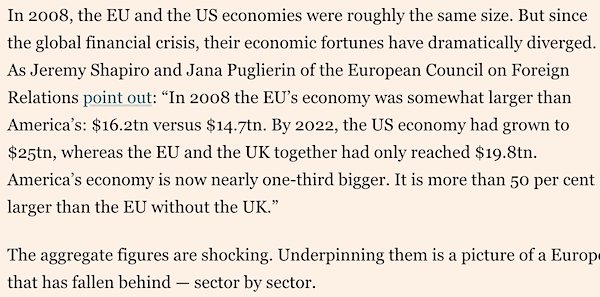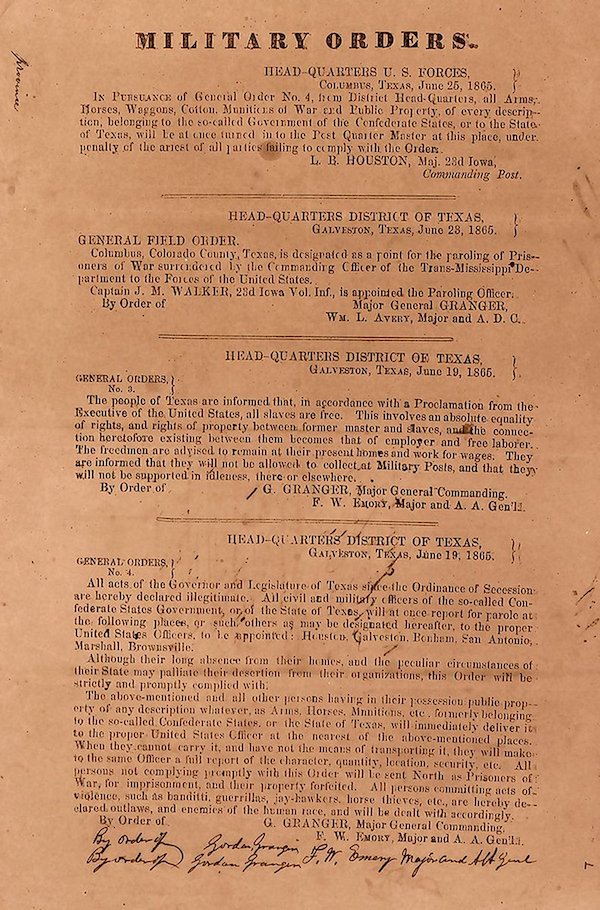
Vincent van Gogh Fishing Boats on the Beach at Les Saintes-Maries-de-la-Mer 1888


Rand Paul
https://twitter.com/i/status/1670604730794401793



Putin OUN
It is the greatest anti-historical obscenity that after all this the Polish people have been misled into their current alliance with the Bandera hordes in Kiev today. pic.twitter.com/sB7zrPPYNN
— George Galloway (@georgegalloway) June 19, 2023

Lavrov Germany
https://twitter.com/i/status/1670747070372691969

Results of the counteroffensive …
Results of the counteroffensive … pic.twitter.com/X6aCkIuSqs
— Lord Bebo (@MyLordBebo) June 19, 2023




“..we desperately need a peace president to do for us what JFK did for the US during the Cuba crisis..”
• We Need a Peace President (Ron Paul)
Most people agree that we are closer to nuclear war than at any time since the 1962 Cuban Missile Crisis. Some would even argue that we are closer now than we were in those fateful days, when Soviet missiles in Cuba almost triggered a nuclear war between the US and the USSR. In those days we were told that we were in a life-or-death struggle with Communism and thus could not cede a square foot of territory or the dominoes would fall one-by-one until the “Reds” ruled over us. That crisis was very real to me, as I was drafted into the military in the middle of the US/USSR standoff over Cuba and we could all feel how close we were to annihilation. Fortunately, we had a president in the White House at the time who understood the dangers of nuclear brinkmanship.
Even though he was surrounded by hawks who could never forgive him for aborting the idiotic Bay of Pigs Cuba invasion, President John F. Kennedy picked up the telephone for a discussion with his Soviet counterpart, Nikita Khrushchev, which eventually saved the world. Historians now tell us that President Kennedy agreed to remove US missiles from Turkey in exchange for the Soviets removing missiles from Cuba. It was a classic case of how diplomacy can work if properly employed. It is all too clear that we do not have a John F. Kennedy in the White House today. Although we no longer face a Soviet empire and communist ideology as justification for taking a confrontational tone toward Russia, the Biden Administration is still dragging the US toward a nuclear conflict. Why are they putting us all at risk?
The same old “domino theory” that was discredited in the Cold War: If we don’t fight Russia down to the last Ukrainian, Putin will soon be marching through Berlin. This all started with Biden promising to only send uniforms and medical supplies to Ukraine for fear of sparking a Russian retaliation. From there we went to anti-tank missiles, multiple-rocket launchers, Patriot missiles, Bradley fighting vehicles, and millions of rounds of ammunition. The Biden Administration announced last week that it would send depleted uranium ammunition to Ukraine, which poisons the earth for millennia to come. Rumors are that long-range ATACMs missiles are to be delivered soon, which could strike deep into Russia. Apparently, F-16 fighter jets are also on the way.
The escalation rationale from Washington, we are told, is that since the Russians have not directly retaliated against NATO for NATO’s direct support of Ukraine’s war machine, we can be sure they never will respond. Is that really a wise bet? It is clear to many that US-built F-16 fighters taking off from NATO bases with NATO pilots attacking Russians in Ukraine – or even Russia itself – would be a declaration of war on Russia. That means World War III – something we managed to avoid for the whole Cold War. Congress is silent – or compliant – as we lurch forward toward disaster for no discernable US strategic goal. Biden – or whoever is actually running the show – is forging straight ahead. As we move into the US presidential election cycle one thing is clear: we desperately need a peace president to do for us what JFK did for the US during the Cuba crisis. Hopefully it won’t be too late!

“About 50% of the global commercial container traffic… goes through the Taiwan Strait every day,” Blinken remarked, including the vast majority of “high-end semiconductors.”
• Blinken Says US Does Not Support Taiwan Independence (JTN)
Secretary of State Antony Blinken said during a press conference Monday that the U.S. does not support Taiwan independence. “We do not support Taiwan independence,” Blinken said. “We remain opposed to any unilateral changes to the status quo by either side. We continue to expect the peaceful resolution of cross strait differences. We remain committed to continuing our responsibilities under the Taiwan Relations Act including making sure Taiwan has the ability to defend itself.” Blinken made clear that the U.S. does have some concerns about China and what its actions could have on the world. “At the same time, we and many others have deep concerns about some of the provocative actions that China has taken in recent years going back to 2016,” he continued, according to Fox News.
“And the reason that this is a concern for so many countries, not just the United States, is that were there to be a crisis over Taiwan, the likelihood is that could produce an economic crisis that could affect quite literally the entire world.” Blinken wrapped up his meeting with China President Xi Jinping and summarized it as “candid” and “constructive,” but admitted to “profound differences” as the two nations seek to repair “unstable” relations with each other. He said during an interview with NPR that it was important to maintain peace with the nation that China treats as its own. Taiwan is a massive contributor to the global trade market. “About 50% of the global commercial container traffic… goes through the Taiwan Strait every day,” Blinken remarked, including the vast majority of “high-end semiconductors.” “If either of those things were taken offline as a result of a crisis, it could have devastating consequences for the global economy,” he continued.
Blinken Taiwan
BREAKING: Secretary of State Anthony Blinken gives China the green light to invade Taiwan during his visit to Beijing, China.
"We do not support Taiwan independence."
What a pivot from Biden’s previous comments from just months ago. What happened?
"Yes, if in fact, there was… pic.twitter.com/gyAp8TPxrW
— Collin Rugg (@CollinRugg) June 19, 2023

Where Blinken got his talking points.
• Beijing Tells US To Respect ‘One China’ Policy (RT)
The US should respect the One China principle and stop supporting Taiwan’s push for independence from Beijing, Chinese top diplomat Wang Yi has told US Secretary of State Antony Blinken. “China has no room to compromise or concede” on the status of Taiwan, Wang told Blinken during a meeting at the Diaoyutai State Guest House in Beijing on Monday. “The US must truly adhere to the One China principle… respect China’s sovereignty and territorial integrity, and clearly oppose ‘Taiwan independence’,” the director of the Central Foreign Affairs Commission office of the Chinese Communist Party was quoted by local media as saying. Washington’s support for sovereignty in Taiwan, a self-governed island of 23.5 million which Beijing views as part of its territory, has been among the issues aggravating tensions between China and the US in recent years.
According to Wang, bilateral relations have now reached “a critical juncture.” He told Blinken that Washington needs to make a choice “between dialogue or confrontation, cooperation or conflict” with Beijing. “We must take a responsible attitude toward the people, history and the world, and reverse the downward spiral of US-China relations,” he said. China’s top diplomat also called upon the Biden administration to stop making threats towards Beijing and abandon its “suppression” of Chinese scientific and technological development. According to the US State Department, Blinken stressed the importance of “responsibly managing the competition” between the US and China “through open channels of communication to ensure competition does not veer into conflict.”
He also told Wang that Washington will “continue to use diplomacy to raise areas of concern and stand up for the interests and values of the American people.” Blinken is the first US secretary of state to visit Beijing in five years. His trip was initially scheduled to take place in February, was postponed due to the so-called “spy balloon” incident. Washington claimed it shot down a Chinese surveillance aircraft over its territory, while Beijing said it was merely a weather balloon, which had strayed into American airspace by accident. Following his meeting with Wang, Blinken held talks with Chinese President Xi Jinping. His two-day visit also included negotiations with China’s recently appointed Foreign Minister Qin Gang on Sunday.

“The international community [..] doesn’t want to choose sides in the event of a conflict..”:
• Future Of Humanity Depends On China-US Relations – Xi (RT)
Stable relations between China and the US are vital for the international community, which doesn’t want to choose sides between the two countries, Chinese President Xi Jinping said during a meeting with US Secretary of State Antony Blinken in Beijing on Monday. “Planet Earth is big enough to accommodate the respective development and common prosperity of China and the US,” Xi told Blinken, according to a statement by the Chinese Foreign Ministry. The Chinese leader said that the world is interested in “generally stable” ties between Beijing and Washington, because “whether the two countries can find the right way to get along bears on the future and destiny of humanity.” The international community expects China and the US to “coexist in peace and have friendly and cooperative relations,” and doesn’t want to choose sides in the event of a conflict, Xi stated.
The Chinese president argued that competition with Beijing would not help Washington to solve America’s domestic problems or the challenges currently facing the world. “China respects US interests and does not seek to challenge or displace the US,” Xi stressed, adding that Beijing expects the same approach from the Biden administration. Xi called on the US to adopt a rational and pragmatic attitude towards China, and to jointly work on improving ties and making the global situation more stable. The Chinese Foreign Ministry said that Blinken had assured Xi during their 35-minute talk that the US does not seek conflict or a new Cold War with Beijing, and has no intention of trying to change China’s political system.
Washington expects to continue high-level engagement with Beijing, while keeping lines of communication open and managing differences responsibly, the top US diplomat said, according to the Chinese statement. Blinken is the first US secretary of state to meet Xi since 2018. He was initially scheduled to arrive in Beijing in early February, but the trip was postponed due to the so-called “spy balloon” scandal. The US claimed it had shot down a Chinese surveillance aircraft over its territory, while China insisted that the object was a weather balloon which had strayed into American airspace by accident. The two-day visit by Blinken also included a meeting with Beijing’s top diplomat, Wang Yi, earlier on Monday, as well as talks with Chinese Foreign Minister Qin Gang on Sunday.

“However, it’s obvious that NATO will not become a party to the conflict.”
• Scholz: West Should ‘Brace’ Itself For Prolonged Conflict In Ukraine (TASS)
The West should adjust its policy with the expectation that the Ukraine conflict may go on for an indefinite period of time German Chancellor Olaf Scholz said on Monday. “We have to brace ourselves that the Russian [special military operation] act could last for a long time,” German Chancellor Scholz said speaking at a joint news conference with NATO Secretary General Jens Stoltenberg “This is what we are preparing for and this is what we are orienting our policy toward,” Scholz told Stoltenberg. “Germany will continue to be a staunch supporter of Ukraine as long as it takes,” Scholz continued. “However, it’s obvious that NATO will not become a party to the conflict.”
On June 14, the German government has adopted the country’s first ever National Security Strategy, which enshrines the main principles and measures to counter potential external threats to the state in the coming years. “The determining factor” of the document’s development was Russia’s special military operation in Ukraine, the “Zeitenwende” or “tipping point,” as German Chancellor Olaf Scholz called it. The German government enshrined its NATO commitments and decided to increase defense spending by twp percent of GDP. “We express our strong commitment to NATO and the EU and strengthen the Bundeswehr (the Armed Forces of the Federal Republic of Germany) to meet the primary objective of national and alliance defense (of two percent),” the document said.
It pointed out that the authorities planned to reach the two-percent increase in defense spending in the term of “over several years.” “We will strengthen our security in cyberspace and space,” the document stressed. In addition, the German government said that it will reduce dependence on energy and raw materials supplies and work on their diversification. “We will reduce unilateral dependency on the supplies of raw materials and energy resources by diversifying them. We will work together with our businesses to promote raw materials projects, including creating strategic stockpiles,” the document said. The German authorities also added that they sought to expand national food, energy, and medicine reserves. The document included as well plans to overpass a law aimed at protecting critical infrastructure facilities.

“Before blaming others, Washington could use some introspection.”
• Biden Warns Of ‘Real’ Nuclear Threat (RT)
President Joe Biden has claimed there is a “real” threat that Russia will use tactical nuclear weapons, soon after the Kremlin announced that it would station some of its arsenal in a friendly neighboring state. Speaking to a group of donors in California on Monday, Biden suggested that Russia’s moves in Belarus could be a sign that it is preparing to use its smaller-yield tactical nukes, despite recent comments from the White House acknowledging no “imminent indication” of any such attack. “When I was out here about two years ago saying I worried about the Colorado river drying up, everybody looked at me like I was crazy,” he said, adding “They looked at me like when I said I worry about [Russian President Vladimir] Putin using tactical nuclear weapons. It’s real.”
The statement came after the president slammed Russia’s upcoming deployments as “totally irresponsible” over the weekend. He previously told reporters he felt “extremely negative” about the decision. Moscow and Minsk finalized an agreement on hosting tactical nuclear weapons on Belarusian territory last month. According to Russian Defense Minister Sergey Shoigu, the atomic warheads will be mounted on Iskander-M missiles and fighter jets specifically modified for the purpose. Russia first revealed that talks for the deployments were underway in March, and said the decision was a response after Britain supplied depleted uranium munitions to Ukraine last year. On Friday, Russian President Vladimir Putin told his Belarusian counterpart Alexander Lukashenko that “everything is going according to plan,” adding that preparations for the missiles would be completed by July.
Responding to critical reactions from US officials, the Russian Embassy in the United States previously accused Washington of hypocrisy on the issue, pointing to some 150 American nuclear missiles stationed across Western Europe and Türkiye. “The United States has been for decades maintaining a large arsenal of its nuclear weapons in Europe. Together with its NATO allies it participates in nuclear-sharing arrangements and trains for scenarios of nuclear weapons use against our country,” it said, adding “Before blaming others, Washington could use some introspection.”

Building a formidable bloc.
• Greater Eurasian Partnership Becomes Russia’s Flagship Project – Lavrov (TASS)
Building support for the Greater Eurasian Partnership project could be seen as the flagship project of Russia’s foreign policy, Foreign Minister Sergey Lavrov said on Monday. “Our flagship foreign political project is to [build] support for the concept of the Greater Eurasian Partnership. What we’re talking about is facilitating the objective process of forming a broad integrative configuration that is open for all countries and associations across our vast continent. Practical steps are already being made [in this direction],” Lavrov said.
These include the processes of interlinking the complementary development plans of the Eurasian Economic Union (EAEU) and China’s Belt and Road Initiative, expanding interaction within the framework of the Shanghai Cooperation Organization (SCO) with the involvement of SCO observer states and dialogue partners, strengthening the strategic partnership between Russia and the Association of Southeast Asian Nations (ASEAN), and establishing working contacts among the executive bodies of the EAEU, SCO and ASEAN, the foreign minister noted. “Among the concrete deliverables [of these processes] we envision the provision of mutually beneficial, interlinking infrastructure and the creation of a continent-wide architecture of peace, development and cooperation throughout Greater Eurasia,” Lavrov added.

“I could give you ten other statistics and they all point in the same direction. This is an empire that is declining..”
• BRICS Expansion, De-Dollarization and ‘Decline of US Empire’ (Tweedie)
Economist Richard Wolff told Sputnik that the US displaced its mother country Britain as the world’s dominant imperial power around 1920 — and that history was now repeating itself. “The American empire didn’t work the same way. It didn’t set up colonies the way the British had in India or South Africa or any of the other places,” Wolff said. “It had a more informal empire. [From] The way it had managed to control Latin America throughout the early years of this country to how they expanded and controlled the world by economic arrangements, by political deals, by alliances.” But the US empire peaked around the year 2000, the academic said, and is now in “decline.” “We lost the wars in Vietnam. We lost the war in Afghanistan. We lost the war in Iraq,” Wolff said.
“It’s not clear what’s going to happen in Ukraine. But I wouldn’t bet money on a different outcome there either. And that war is a war between the United States and Russia more than anything else, with the disaster being concentrated on […] Ukraine.” While the US leads the G7 group of the biggest Western economies, “there’s a different and other bloc, and that’s what’s new, it’s the bloc called the BRICS.” “The BRICS now account for 33 per cent, one third of the total output of goods and services on this planet, whereas the United States and its allies have slipped to under 30 per cent, about 29 per cent of total output.” “I could give you ten other statistics and they all point in the same direction. This is an empire that is declining,” he added.
The conflict in Ukraine and Western sanctions on Russia — the world’s biggest energy and food grain exporter — has accelerated that downfall. “The economic war between Russia and Europe is being lost by Europe, not by Russia, which was not the intent, but is the outcome,” Wolff said. “The Europeans are going to have to ask themselves, which side are you on? Are you going to stay with the US and the G7 and heading down the slide of your bloc as the BRICS blocs rises, or are you going to choose the other way?” The academic pointed out that when the UK had the world’s greatest empire from the 17th to the 19th centuries, the pound sterling was the “global currency.” With the rise of the US in the 20th century the dollar usurped the pound.
“What that means is that everywhere in the world, people need dollars to do their business. Central banks hold dollars as that alongside of gold, as the guarantor of the value of their currency,” Wolff explained. Now BRICS has overtaken the G7 as “the dominant economic bloc in the world,” a new contest has begun which will end in “the decline of the dollar and the rise of whatever alternative the BRICS settle on, either the Chinese currency or a composite that they’re producing.”

Everybody takes their cut…
• Kiev Reportedly Can’t Account for ‘Hundreds of Millions’ in Weapons (Reed)
The Zelensky regime spent “hundreds of millions” on weapons which have yet to materialize, according to a damning new [NYT] article which reported serious problems throughout the Ukrainian military supply chain. “Ukrainian government documents show that as of the end of last year,” Kiev’s leaders “paid arms suppliers more than $800 million since… February 2022 for contracts that went completely or partly unfulfilled,” the outlet noted. “We did have cases where we paid money and we didn’t receive,” a deputy Ukrainian defense minister working on arms procurement reportedly confirmed. When weapons do show up, their quality is reportedly a major source of frustration. Video of a “recent delivery of 33 self-propelled howitzers donated by the Italian government…. showed smoke billowing from the engine of one, and engine coolant leaking from another,” according to the outlet.
In a statement, Italy’s Defense Ministry claimed the vehicles were known to have been decommissioned long ago but that the Kiev regime demanded them regardless. The weapons were always meant “to be overhauled and put into operation,” the ministry insisted, given what it called “the urgent need for means to face the Russian aggression.” But the headaches didn’t end there. Efforts to fix the faulty howitzers were complicated by another setback in January after Zelensky’s officials claimed they paid a US company to carry out the necessary repairs, but 13 of them were still “not suitable for combat missions” when received. In a February letter to the Pentagon’s inspector general, Ukraine’s defense procurement director effectively accused Ultra Defense Corporation of defrauding the Kiev regime of millions of dollars, claiming the Florida-based weapons supplier took $19.8 million of Ukrainian government funds with “no prior intention to fulfill its obligations.”
However, the company’s chief executive, Matthew Herring, strenuously denies the accusations. “Every single one of them worked when we delivered them,” he reportedly wrote. In a statement which accused the Ukrainians of failing to maintain the weapons upon their arrival, he noted that one howitzer suffered from a coolant leak which “magically appeared after delivery in Ukraine.” The episode isn’t the only instance where Kiev officials’ stories didn’t exactly match up with the entities they partnered with. The documents, reportedly the product of a government audit this year, “showed that some of the most valuable sets of undelivered contracts are between the Defense Ministry and state-owned Ukrainian arms companies that function as independent brokers.” “In recent months, the ministry has sued at least two of those state firms over unfulfilled contracts, and Ukraine recently announced overhauls aimed at making those companies more efficient,” the outlet reported.

With all those millions/billions missing, let’s spend more, and faster…
• EU Wants to Mandate Arms Makers to Prioritize Orders for Ukraine
The European Union put forward a “temporary emergency measure” which will obligate manufacturers of explosives to prioritize the orders of firms producing ammunition for Ukraine, the military news portal reported on Monday, citing a European Commission spokesperson. “The Commission’s proposal provides for priority rated orders to help manufacturers – for example – with the supply of necessary raw materials where the Commission could ask suppliers to prioritize selling to those manufacturers,” the spokesperson told the outlet. At the moment, the “emergency measure” is getting through the EU’s approval process, the spokesperson was cited as saying.
The initiative has already drawn criticism from a number of member states and private companies that fear the Commission will get too much power assuming the role of regulator of the ammunition market, according to the report. They argue the plan will create conditions for the violation of trade secrets or the disclosure of confidential information. The unnamed Commission spokesperson allayed these concerns by telling that “the Commission has long-standing experience in handling such information in the context of other procedures and has the necessary safeguards in place.” In early May, the Commission announced it would allocate 1.5 billion euros ($1.6 billion) for the production of ammunition for Ukraine. The EU plans to spend another 500 million euros on expanding the production of shells in Europe.

“German media have mocked it as the ‘Pannenpanzer,’ or “breakdown tank.”
• German Armor Too Wide To Transport – Bild (RT)
Germany’s main infantry fighting vehicle, the Puma, is too wide to be transported by train, the outlet Bild reported on Sunday. The IFV has struggled with a variety of mechanical problems since entering service in 2015. “In terms of firepower, the Puma is really good. But the transport is more than suboptimal,” one soldier told Bild. Tracked vehicles such as tanks and IFVs are normally transported to the area of operations by train, in order to save on fuel and track maintenance. Because the Pumas are so wide, their crews need to unscrew their side armor before loading it onto the rail cars – then repeat the procedure in reverse at the destination. A company of 14 Pumas can be “completely loaded and stowed in 24 hours,” a Bundeswehr spokesperson told Bild.
Military experts estimated that transporting an entire battalion of 44 vehicles can take “a few days.” One big bottleneck is a shortage of cranes, but the military said Puma companies will be “equipped with them in the future.” Rheinmetall and Krauss-Maffei Wegmann developed the Puma between 1995 and 2009 to replace the older Marder IVF, which Berlin has since supplied to the Ukrainian military. The specifications called for a vehicle that could be airlifted to places like Africa and Afghanistan. “The Puma shows what mistakes were made in procurement,” Andreas Schwarz, a Bundestag member from the ruling SPD, told Bild. “Instead of relying on battle-tested and marketable weapon systems, a panzer was developed according to special requests that is too wide for train transport. That must end.”
Word of the new problems with the Puma comes during a difficult month for the reputation of German armor, as photographic and video evidence from Ukraine showed Leopard 2 tanks provided to Kiev getting destroyed in battles with the Russian military. Berlin paused the purchase of new Pumas last December, after a disastrous exercise that saw one of the vehicles catch fire and all 18 break down. The vehicle is supposed to have superior crew protection and excellent firepower, including a 30mm autocannon and anti-tank missiles. However, German media have mocked it as the ‘Pannenpanzer,’ or “breakdown tank.”

They’re probably making deals for a Ukraine that includes the Donbass (the richest part) and Crimea. But there will not be such a Ukraine.
• BlackRock, JP Morgan Set Up ‘Reconstruction Bank’ For Ukraine (HE)
BlackRock and JPMorgan Chase are reportedly aiding the Ukrainian government in setting up a reconstruction bank that could see rebuilding projects being heavily invested in by private entities. The Financial Times noted that it would cost Ukraine roughly $411 billion to rebuild their country amid the onslaught of attacks by Russia, but the cost is continuing to increase. The Ukraine Development Fund is still in the early stages of setting up the reconstruction bank, but potential investors will get an inside preview of how things will look during a London conference that is set to take place this week. With the steep cost to rebuild, the Ukrainian government reached out to BlackRock in November to see if there was a conceivable way of attracting investments. JPMorgan was soon added in February.
Ukrainian President Volodymyr Zelensky confirmed last month that he was working with the two financial institutions and consultants at McKinsey, per the report. Philipp Hildebrand, BlackRock vice-chair, said: “So many of today’s long-term challenges are best addressed through blended finance and this is one. You need these vehicles to mobilise capital at scale.” Though BlackRock and JPMorgan are offering their services, they will likely have the first look at potential investments in the Eastern European country. The report noted that the current development has only deepened JPMorgan’s relationship with its long-standing client, Ukraine. The financial institution has helped Ukraine raise more than $25 billion in sovereign debt since 2010, and it led in the country’s $20 billion debt reconstruction in 2022.
BlackRock has claimed that Ukraine needs a “development finance bank” that would provide the country with infrastructure, climate, and agriculture opportunities. This will apparently make them more attractive to other long-term investors. JPMorgan was added to the venture due to its debt expertise. Stefan Weiler, JPMorgan’s head of debt capital markets in Africa, Europe, and the Middle East, said: “The fund is being set up to also give public and private sector investors the opportunity to invest into specific projects and sectors.” “There will be different sectoral funds that the fund identified as priorities for Ukraine. That aim is to maximise capital participation.” However, it does not appear that Ukraine is expected to receive such investments until the end of the conflict with Russia.

“..if Harris were flat-out forced to resign, then Speaker of the House Kevin McCarthy (R-CA) would automatically become president..”
• Strange Days (James Howard Kunstler)
Strange doings at a strange time in a strange land. Videos of widespread military vehicle maneuvers around our nation popped up on the Web at mid-weekend while the American citizenry went about its holiday weekend business (including Father’s Day revels and “Juneteenth” celebration mass shootings): Scenes of armored personnel carriers rolling down Walnut Street in downtown Philly; B2 bomber wings over Minnesota; Tank columns galumphing along a California highway… leading to widespread suspicions that something untoward is up. Durned if I know what’s up. Among things one can know: The “Joe Biden” presidency is whirling around the drain in plain sight, and with it, likely, the Globalist hopes and dreams of making everybody eat bugs while they take away everything you own.
Last week, audiotapes surfaced of the main parties to the Ukraine grift (Biden and Poroshenko) working things out in 2016 over the phone in “JB’s” final days as vice-president. Meanwhile, the House Oversight Committee has got its mitts on Biden family bank records galore detailing the abstruse money-laundering activities that were run through obscure European banks and innumerable Biden shell companies. Well, sonofabitch…! It’s getting hard even for Democrats to ignore the accumulating evidence of the Biden family’s global grift operation, and “JB’s” obvious advancing mental deterioration, provoking moves that should lead to his ejection from office. Last week, their captive mainstream news media broadcast a cavalcade of embarrassing public idiocies committed by the Commander in Chief — declaring “God save the Queen” incongruously at the end of a Gun Safety Summit in Connecticut; groping actress Eva Longoria’s boobs after a White House movie screening; cracking a weird joke about the “Philadelphia girl” in his bed (Dr. Jill Biden); being introduced at an I-95 bridge collapse event by brain-damaged PA Senator John Fetterman who tossed up a word salad about the federal “delegadation” aiming to fix “infructure,” while dressed-up looking like Uncle Fester out of The Addams Family. The indignity of it all was really something to behold.
You understand, “Joe Biden’s” reelection campaign is another rank hoax, yet another trip laid on the American public by a desperate, degenerate Democratic Party that doesn’t know what to do next with public opinion souring on it. There’s no way this gibbering near-corpse can run again. He can’t even perform as a puppet anymore. He’s a broke-down engine pulling a train of failure, perfidy, and treason five miles long behind him. The Ukraine war project he presides over looks more and more like an effort to conceal and cover-up his family’s bribery schemes by laying waste to the pitiful chump of a foreign land that went along with the grift — and which, anyway, is winding up as yet another American military humiliation with the Russians finishing off what’s left of Ukraine’s army in the failed “spring offensive.”
Do you suppose that all these military vehicle movements around the country in recent days signal a constitutional crisis in the offing, necessitating martial law? Let me lay it out: Absolutely no one believes that Vice-president Kamala Harris is up to the job of stepping-in when “Joe Biden” gets bum-rushed out of the White House. Nor, I’m sure, are they willing to force her to resign hastily without a substitute vice-president (say, Gavin Newsom) in place — a cumbersome process that requires approval by both the House and Senate (with the Senate split 50-50 and no vice-president to preside over the body with a tie-breaking vote). But if Harris were flat-out forced to resign, then Speaker of the House Kevin McCarthy (R-CA) would automatically become president.

“..hate speech” includes the reluctance of some people online to use female pronouns when referring to transwomen..”
• The New World War On Free Speech (Shellenberger)
The war on free speech is hardly a novel phenomenon, instead mutating over the centuries. What is new, however, is its global aspirations: today, the conflict takes the form of a world war. You can see its shadow in every Western country, from the US and Canada to Ireland and Australia, as well as in every multinational organisation, from the EU to the UN. Rising levels of hate speech and misinformation, we are told, make it more urgent than ever for governments, corporations and multilateral organisations to adopt stronger measures to protect vulnerable populations online. It is for this reason that Biden’s Department of Homeland Security recently created a “Disinformation Governance Board”, the European Commission crafted a new Digital Services Act and Code of Practice on Disinformation, and the UN is proposing a “Code of Conduct for Information Integrity on Digital Platforms”.
All of these initiatives are allegedly the product of good intentions; all of them, however, are rooted in the same fallacy: there is little evidence to suggest that hate speech and misinformation are on the rise. On the contrary, Western countries are more tolerant of racial, religious and sexual minorities than ever before. To take one example, the percentage of Americans who approve of marriages between white and black Americans has risen from 4% in 1958 to 87% in 2013 to 94% in 2021. There are, of course, plenty of examples of misinformation and hatred online, and Twitter and Facebook are right to reduce their spread — but often the threat is exaggerated. The Institute for Strategic Dialogue (ISD), for instance, recently published a study that concluded that antisemitism was increasing on Twitter.
But there is no definitive evidence of rising hate online. The ISD study counted tweets criticising George Soros which didn’t mention his Judaism as antisemitic. Elsewhere, “hate speech” includes the reluctance of some people online to use female pronouns when referring to transwomen — even though one might oppose using female pronouns for natal males and harbour no animus toward transwomen. Here we can see that what people label as “hatred” and “misinformation” is often merely an opinion they don’t like or which they fear will encourage bad behaviour. In both the UK and the US, this led to government officials demanding that social media platforms censor “often-true” content, including about Covid vaccine side effects, out of fear that such stories would result in vaccine hesitancy.
What’s more, Facebook and Twitter have also started deleting a significant amount of true content. Between 2020 to 2021, for example, Facebook censored claims that the coronavirus came from a Chinese lab, even though that was always as likely, if not more so, than the natural-origin hypothesis. Twitter also censored an accurate New York Post story about Hunter Biden’s laptop while allowing supporters of his father, Joe Biden, to falsely claim it was a result of “Russian disinformation”. The global campaign to censor disfavoured views on Twitter and Facebook is therefore rather curious. If there is no evidence that hatred and misinformation are increasing, and ample evidence of inappropriate censorship of true and accurate information, why are politicians across the West calling for greater power to censor?


“Congress has also approved the building of a giant elephant statue in D.C. to honor the party responsible for the freeing of slaves from Democrat plantations..”
• Juneteenth, The Day Republicans Freed All The Democrats’ Slaves (BBee)
The Senate has unanimously passed a resolution to recognize Juneteenth as a federal holiday, commemorating the glorious day Republicans freed the last of the Democrats’ slaves. “We are so proud to show the world how not racist we are by officially recognizing the day the Republicans came charging in to free all our slaves,” said Senate Democrat Chuck Schumer. “Yeah– we Democrats did a little ‘whoopsie’ with that whole slavery thing, but the Republicans corrected it. Thanks, Republicans!” During this year’s Juneteenth, the nation will gather to celebrate the American political party that was founded on protecting human rights of people of all skin colors.
Democrats around the country will write letters of apology and organize celebrations for the vast network of Christians, Catholics, Quakers, and Republicans who fought and died to end the scourge of slavery in America. Congress has also approved the building of a giant elephant statue in D.C. to honor the party responsible for the freeing of slaves from Democrat plantations. Biden has confirmed he will organize a celebration at the White House after he lays a wreath on the grave of his best friend Robert Byrd.






Tom AI
https://twitter.com/i/status/1670759255044157440

Baby Hum
https://twitter.com/i/status/1670742749807620096

Tardigrade
https://twitter.com/i/status/1670749721365733376

Fibonacci
How logarithmic and Fibonacci spirals appear in simple day by day things like sharpening an edge while working wood
[full video: https://t.co/6ibFWi1vhH]
[read more: https://t.co/YM2KBeNPgT]pic.twitter.com/AiRovxj3dZ— Massimo (@Rainmaker1973) June 19, 2023

Manatee
Manatees—often called sea cows—are “charismatic” wild animals that hold humans in their thrall. Neither predator nor prey, these peaceable creatures can grow to 13 feet and weigh more than 2,000 pounds https://t.co/1UOm8DmH3g
Video by Gena Steffens and Jason Gulley pic.twitter.com/x4qNdS9RX0
— National Geographic (@NatGeo) June 18, 2023


Support the Automatic Earth in virustime with Paypal, Bitcoin and Patreon.









Home › Forums › Debt Rattle June 20 2023